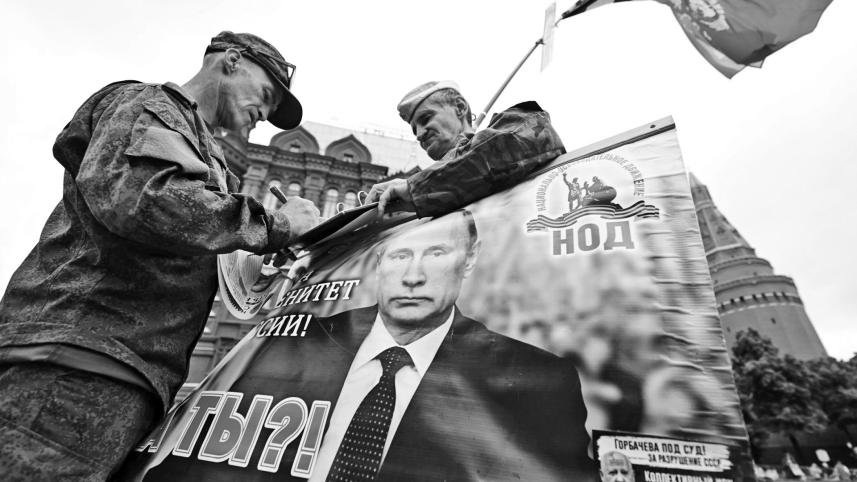Wagner revolt makes Putin look weakened

Wagner mercenaries were headed back to base yesterday after Russia's President Vladimir Putin agreed to allow their leader to avoid treason charges and accept exile in Belarus.
The agreement ended the immediate threat that Yevgeny Prigozhin's private army could storm Moscow, but analysts said Wagner's revolt had exposed Putin's rule as more fragile than had been thought.
Security measures imposed under an "anti-terrorism operation" were still in place in Moscow till yesterday, and Prigozhin's exact whereabouts were unclear.
He was last seen late on Saturday in an SUV leaving Rostov-on-Don, where his fighters had seized a military headquarters.
There were reports that Wagner fighters had come as close as 400 kilometres from Moscow, while Prigozhin himself claimed that "in 24 hours we got 200 kilometres from Moscow."
Within hours of Prigozhin's surprise announcement that his forces would return to base to avoid "spilling Russian blood", the Kremlin said Putin's former ally would leave for Belarus.
Russia would drop the "armed rebellion" charges against Prigozhin and not prosecute Wagner troops, it said.
Analysts also said the deal had exposed weakness in the Russian president's grip on power.
Belarusian leader Alexander Lukashenko said he had negotiated the truce with Prigozhin. Moscow thanked him, but observers noted that an intervention by Lukashenko, usually seen as Putin's junior partner, was itself an embarrassment.
Little is known about the deal, with Minsk saying simply that "negotiations continued throughout the day."
Asked if Prigozhin had been given a guarantee that he would be able to leave to Belarus, Kremlin spokesman Dmitry Peskov told domestic media: "It is the word of the president of Russia."
In Ukraine, President Volodymyr Zelensky's senior aide Mykhailo Podolyak tweeted: "Prigozhin humiliated Putin/the state and showed that there is no longer a monopoly on violence."
Russia insisted the rebellion had no impact on its faltering Ukraine campaign and the day after the mutiny said it had repelled new offensive attacks by Ukrainian forces.
Wagner fighters were often thrown into the front of Russia's advance in Ukraine. The outfit also conducts several mercenary operations in the Middle East and West Africa.
These missions are seen to have the Kremlin's backing and amount to Russian influence operations to curry favour with African governments and win access to mineral resources.
Independent political analyst Konstantin Kalachev told AFP: "The crisis of institutions and trust was not obvious to many in Russia and the West yesterday. Today, it is clear.
"Yesterday's call for unity made by representatives of the elites only confirmed this. Behind these is a crisis of institutions and fears for themselves," he said.
He noted that Russian leaders would be concerned by the sight of civilian onlookers applauding Wagner units in Rostov.
"Putin's position is weakened," he said. "Putin underestimated Prigozhin, just as he underestimated Zelensky before that. He could have stopped this with a phone call to Prigozhin but he did not."
The Institute for the Study of War, a Washington-based think tank, said: "The Kremlin now faces a deeply unstable equilibrium.
"The Lukashenko-negotiated deal is a short-term fix and Prigozhin's rebellion exposed severe weaknesses in the Kremlin and Russian MoD."



 For all latest news, follow The Daily Star's Google News channel.
For all latest news, follow The Daily Star's Google News channel.
Comments